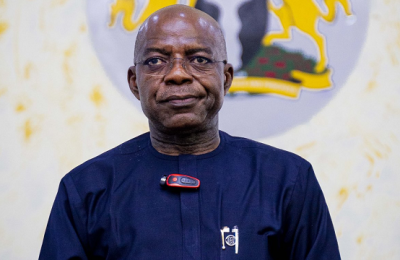
HISTORICALLY, Ibadan and Ede are agemates. As two of the oldest Yoruba towns, history pegs their genesis at the 16th century, with historians claiming that Alaafin’s legate Timi Agbale, specifically founded Ede about 1500, while Ibadan’s existence could be at any point in the century. For record purpose, the century under consideration here, ran between 1501 and 1600. At the risk of courting controversy, it is safe to assume Ede is older than Ibadan, but is age not just a number?
A sampler. Ibadan, historically assumed to be the younger entity here, has gone in the course of time to become one the largest cities in Africa and at a point, just behind the monstrous Cairo. A point of distinction to make is that both Lagos and Cairo, considered the first and third largest cities in Africa, with over 22 million residents each, are of different status to Ibadan. Lagos is a whole state. Cairo is one of the 29 governorates {equivalent of states} within Egypt. The city of Cairo is the Capital of Cairo and Cairo itself is the capital of Egypt. Yet Ibadan is competing well in spread and growth, despite being one of the towns making up Oyo State. But it looks like its history and status are set for an upgrade. Ibadan deserves to be a state and that status should be conferred accordingly as soon as possible {asap}.

Both Ede and Ibadan have strong Muslim community, with Ede producing the first Muslim Oba in Yorubaland through Timi Abibu Lagunju who reigned between 1817 to 1900. That will also make it safe to conclude that Ede is older than Ibadan in the practice of Islam.
In recent time, I have had reasons to frequent Ede, of course going through Ibadan, especially the part you want to consider the gateway, the ever-bristling Iwo Road. Compared to Ibadan in modern-day relevance, Ede is supposed to take the row behind, without meaning it as an insult, to a town that will eminently qualify as the “gown” town, considering the fact that Ede alone has two private university and a federal polytechnic, not discounting another private university in a nearby town and yet another newly-licenced private university, just a stone’s throw away from the historical town. I am deliberately not mentioning names to avoid running unsolicited blurbs.
Ibadan has been what Ede can only aspire to be, functioning as the capital of what is now a cumulative of about eight states during regional government era and in developmental strides, growth, human capital, business opportunities, commerce and even in modernity, the Oyo State capital is well ahead. So, why is its gateway so messed up with the eye-souring beggar colony therein?
Anybody coming from Lagos and passing through Ibadan for the first time, to connect other parts of the South West aside Ogun State, cannot but notice the nuisance around Iwo Road, especially under the bridge where adult beggars practically hold traffic to ransom and their children taking suicide risk, doing gasping acrobatics on the edge of the kerb,
My little research confirmed that begging culture is not Islamic, though the impression that it is, has lingered and front-row leaders of the faith, especially in Northern Nigeria, believed to be the “home” of the faith, are burnishing the wrong impression to sustain relevance, dominance and control. Truth is, almost all the beggars I constantly encounter in Iwo Road have the faith all over them, either as Hausa-speaking or hijab-wearing women and men from either the Northern part of the country or mostly-Islamic countries bordering them, or Yoruba-speaking somewhat old women and men, who still want to project their faith, through their physical appearances.
I understand the predicament of any governor of the state, either of Muslim or Christian faith, attempting to move these people. If a Muslim governor goes for them, then he is fighting his brothers and sisters. It is worse for a Christian governor. He will be called out even by passive Muslims for moving against Islam, Oyo State being a major unit of a supposedly enlightened Yoruba race, notwithstanding. That is why I chose Ede, to show that the shame at Iwo Road, is nothing Islamic, considering that it is Ibadan’s senior in the practice of the faith. I have been a bit around town in that town and yet to encounter even a beggar, let alone a community. I am not saying I have touched all the recess of the town but there are strategic areas in a town that communicate the optics and imageries that will represent the essence of the town. It is just like man and the saying about dressing the way you want to be addressed.
Even when fathers were wooing maidens for their sons to marry and daily bath was not a thing, folklore says the day the would-be groom and bride would meet, the former must as a matter of compulsion, bath and spruce things up with his appearance. Decency and cleanliness are contiguous. I know Ibadan used to be the filth city but that is now an old story as they say. I will never equate any human being to litter no matter the level of his/her descent into the poverty pit but you cant allow everything to degenerate because the season bears all the trappings of anomie.
Yes beggars are everywhere including the 10 wealthiest cities of the world, particularly those in the West like London, Paris and New York which are trying to find accommodation for every hue of humanity, including those of controversial shades. A striking report about the America’s wealthiest city says of the “nearly 8.3 million people, nearly one in every 63 New Yorkers is homeless, that is more than 130,000 men, women and children. More than 4,000 people are living unsheltered in the subways, on the streets of Manhattan or in one of the other boroughs”.
Before anyone would mount a defence for the Oyo situation with the scenario above, it should be noted that one, we are talking about homelessness and not necessarily begging here. Two, government isn’t folding its arms over there, though the crisis is almost self-invited with the policy to make it a sanctuary city in 1989. I understand FCT Minister Nyesom Wike courting fresh controversy recently with his threat to remove beggars from the metro and the argument that the policies of the government he serves are the reason more beggars are flooding the streets. Sound logic, but two wrongs will never make a right. Beggars lining the streets and creating optical and traffic nuisance won’t magically transform the economy. In reverse, it could further tank the economy by communicating negatives that can affect corporate and commercial tourism and even investment.
I am for government taking care of its citizens, regardless of status; economic, social et al. Since government is also becoming more self-serving, it should be pressured constantly to do what is right. Beggars in Abuja, Ibadan and elsewhere would be right, protesting their plight to those representing them, but they can’t be straying in and out of traffic at their pleasure, to the displeasure of other road users. Beggars are also in Lagos, but they don’t line up the city’s gateway. No, I am not saying government should hide them. That would be tantamount to hiding official irresponsibility. They should be moved out of their current abode and be properly integrated into some functional environment .
Yes, Ibadan as a state capital has greater attraction than Ede, just like New York to Little Rock in Arkansas, but the difference in the resources available to both, is also like 7Up. Interestingly both towns have sons who are sitting governors. Ibadan city can’t be angling to become a stand-alone state like Cairo, with beggars straddling its gateway.
READ ALSO: Police debunk viral video on poor training conditions







